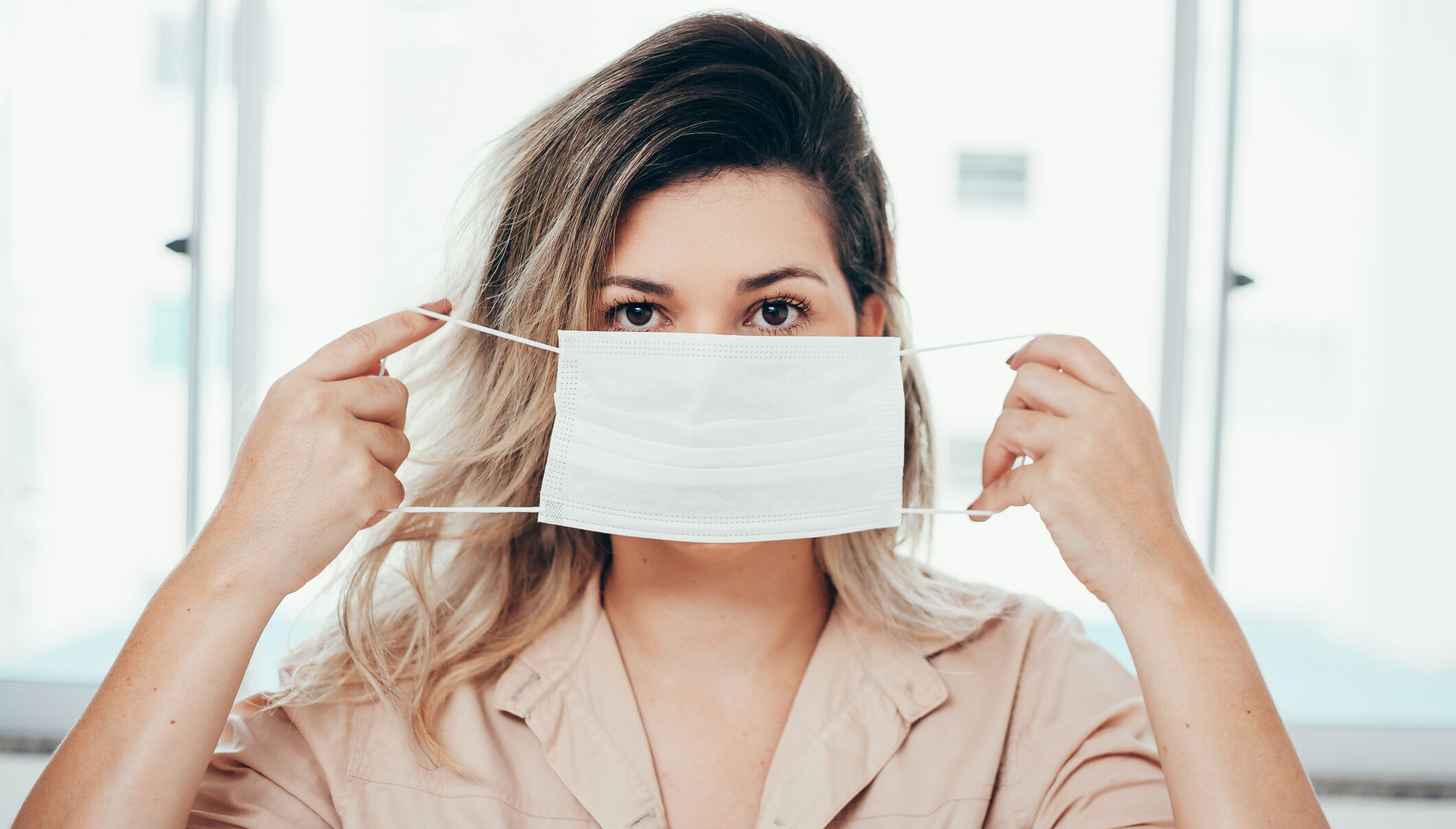1. Set Boundaries With Yourself.
You won’t be able to control people around you, but you can respond to situations with a boundary of your choice.
Most of the time, boundaries aren’t for other people; they are for you.

Read More: “Pandemic Trauma And Stress Experience Is Real And It’s Impacting Many”
Social anxiety can increase when you try to control another person’s perspective on the pandemic.
If you feel uncomfortable with a certain situation, ask yourself what will make you feel comfortable. Once you decide, don’t abandon yourself in the situation.
If you know that wearing a facial covering to the grocery store makes you feel safer even if it is not required, you are allowed to do that for yourself.
Make choices that help you with coronavirus anxiety.
If you feel scared about going to restaurants, you can still get takeout to support local restaurants. You get to do what feels most comfortable to you. By keeping yourself safe in a situation, you can keep your loved ones safe.
You may have to reinforce your boundary once it’s made, but with practice, you will find yourself succeeding in setting and holding boundaries with yourself and others.
2. Be Clear About Your Comfort Level.
You don’t have to justify the way you feel to increase the comfort around you.
Trying to justify your feelings can lead to stress and increased fear. You can decide what feels safe to you or not.
If a group of your friends is meeting, and you feel yourself getting anxious with the number of people gathering or measure of social distancing, you have options.
You get to be clear about your comfort level and make choices dependent on where you stand.
This may result in terminated friendships, and it can also mean that you stay close with friends who respect your decisions.
When you are clear about your messaging, it is kind. When you are unclear, it can create disrespect.
You may have had a well-meaning intention, but without clarity and authenticity, the outcome can become confused leading to fall outs with the people in your life.
3. Take Breaks From Content.
The news and social media can increase anxiety regarding COVID. Let yourself take a break as often as you need.
You get to control what content you allow into your life. If you are consistently watching or participating in content that increases your anxiety, take a break.
Being too informed is not worth increased fear in these uncertain times.
If you have to delete apps from your phone, you have permission to do so.
It is helpful to stay informed and you don’t have to do so at the expense of yourself.
Numbers and protocols are fluctuating all of the time, so it is important that you show up for yourself in a consistent way even when external factors are changing.
Covid 19 stress, depression, and lack of care can lead to heightened anxiety. Fear around minute-by-minute content can lead to dysregulation and addiction to excitement.
Allow yourself peace of mind with a pause.
4. Stay Connected.
When people are loving and affirming toward you, you have likely found a place or community that creates a sense of belonging for you.
Social support is imperative, especially when you have experienced a range of loss during the pandemic.
Anxiety can increase when you feel like you are spiraling into your own world without others supporting you.
A professional therapist can be a steady source of regularity in your life.
Friends who help you make meaning can also be supportive.
Knowing that people will show up for you, and you will do the same for others can be an edifying experience for those involved.
If you regularly attend recovery or support groups, there are still many options available online to find a meeting that is comfortable and safe for you.
Often, doing the opposite of what your anxiety asks of you is the more helpful way to go in reducing anxiety in the long run.
5. Take Care Of Your Body.
Eating foods that feel satiating and nourishing can help you lessen anxiety.
You get to listen to what your body is telling you so that you can make decisions that feel healthy to you. Instead of ignoring hunger cues, listen.
If you have bottled up energy, you may feel more anxiety. A healthy way to release this feeling is to take a walk.
Denver has many peaceful places to take a walk.
You can also spend time practicing mindfulness, meditation, or deep breathing. Strategies like getting enough sleep can be a simple solution when you feel overwhelmed with anxiety.
You don’t have to experience a crisis to have permission to take care of yourself; it can be a form of prevention and a healthy way to build your immune system.
Listen to what your body needs and help yourself make that happen.
You know what works best for you.
Be willing to listen and learn.
Managing anxiety with COVID can feel complicated, especially because you won’t be able to control what others are doing and saying. Likely, you have encountered someone with a different opinion than you.
With that, you can still manage anxiety by understanding what is in your control.
You can control your attitude, boundaries, expectations, and clarity around what you say. You might not always be successful with the way you show up, and you can still be willing to learn as you navigate.
You are not alone; there are mental health resources available to you should you want to explore more formal supports.
Contact us for anxiety counseling today.
***
Written by: Randi Thackeray, MA
Clinically Reviewed and Edited by: Julie Reichenberger, MA, LPC, ACS, ACC

